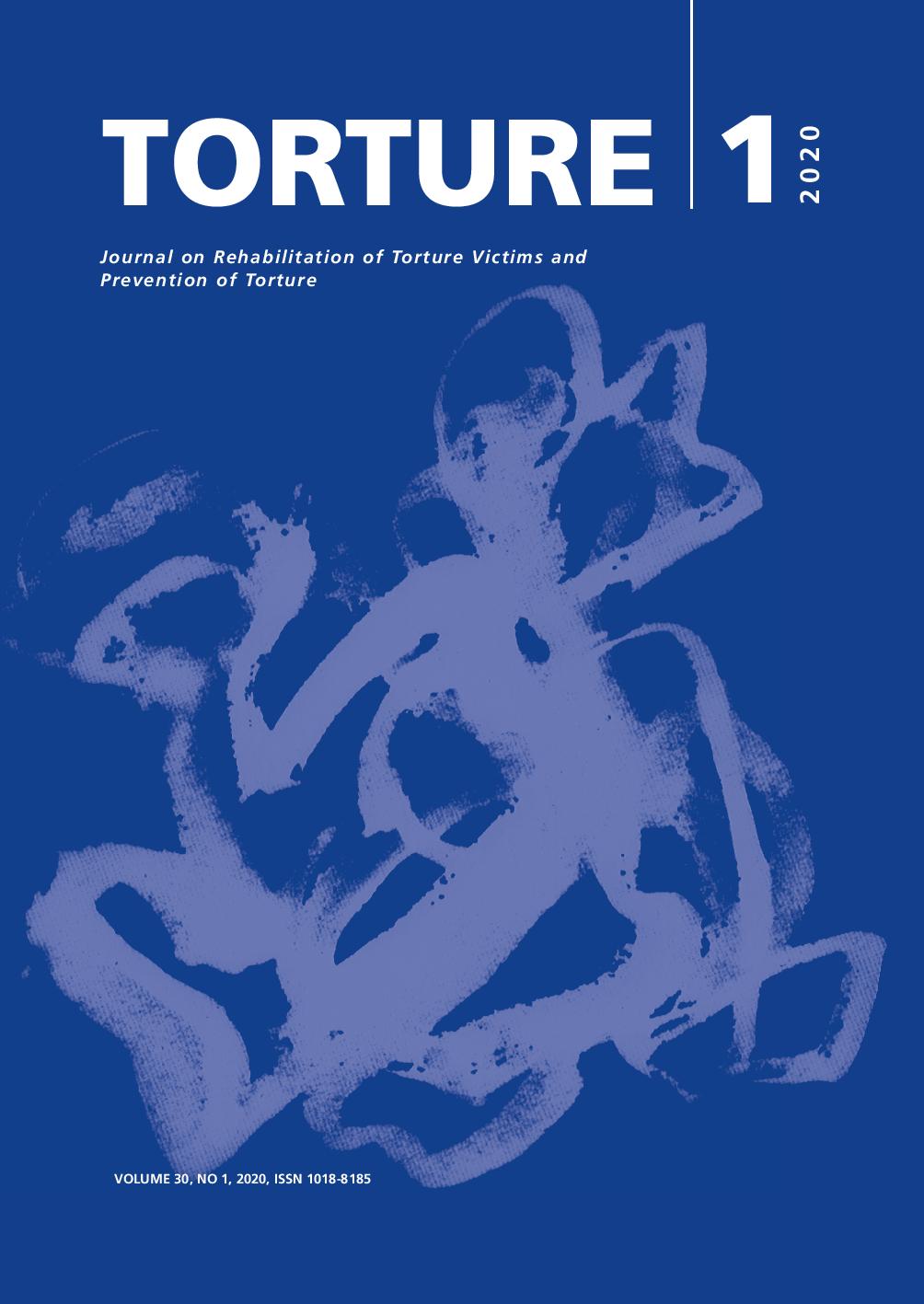Statement of the Independent Forensic Expert Group on Conversion Therapy
DOI:
https://doi.org/10.7146/torture.v30i1.119654Palabras clave:
IFEG, Conversion TherapyResumen
Conversion therapy is a set of practices that aim to change or alter an individual’s sexual orientation or gender identity. It is premised on a belief that an individual’s sexual orientation or gender identity can be changed and that doing so is a desirable outcome for the individual, family, or community. Other terms used to describe this practice include sexual orientation change effort (SOCE), reparative therapy, reintegrative therapy, reorientation therapy, ex-gay therapy, and gay cure.
Conversion therapy is practiced in every region of the world. We have identified sources confirming or indicating that conversion therapy is performed in over 60 countries.1
In those countries where it is performed, a wide and variable range of practices are believed to create change in an individual’s sexual orientation or gender identity. Some examples of these include: talk therapy or psychotherapy (e.g., exploring life events to identify the cause); group therapy; medication (including anti-psychotics, anti- depressants, anti-anxiety, and psychoactive drugs, and hormone injections); Eye Movement Desensitization and Reprocessing (where an individual focuses on a traumatic memory while simultaneously experiencing bilateral stimulation); electroshock or electroconvulsive therapy (ECT) (where electrodes are attached to the head and electric current is passed between them to induce seizure); aversive treatments (including electric shock to the hands and/or genitals or nausea-inducing medication administered with presentation of homoerotic stimuli); exorcism or ritual cleansing (e.g., beating the individual with a broomstick while reading holy verses or burning the individual’s head, back, and palms); force-feeding or food deprivation; forced nudity; behavioural conditioning (e.g., being forced to dress or walk in a particular way); isolation (sometimes for long periods of time, which may include solitary confinement or being kept from interacting with the outside world); verbal abuse; humiliation; hypnosis; hospital confinement; beatings; and “corrective” rape.
Conversion therapy appears to be performed widely by health professionals, including medical doctors, psychiatrists, psychologists, sexologists, and therapists. It is also conducted by spiritual leaders, religious practitioners, traditional healers, and community or family members. Conversion therapy is undertaken both in contexts under state control, e.g., hospitals, schools, and juvenile detention facilities, as well as in private settings like homes, religious institutions, or youth camps and retreats. In some countries, conversion therapy is imposed by the order or instructions of public officials, judges, or the police.
The practice is undertaken with both adults and minors who may be lesbian, gay, bisexual, trans, or gender diverse. Parents are also known to send their children back to their country of origin to receive it. The practice supports the belief that non-heterosexual orientations are deviations from the norm, reflecting a disease, disorder, or sin. The practitioner conveys the message that heterosexuality is the normal and healthy sexual orientation and gender identity.
The purpose of this medico-legal statement is to provide legal experts, adjudicators, health care professionals, and policy makers, among others, with an understanding of: 1) the lack of medical and scientific validity of conversion therapy; 2) the likely physical and psychological consequences of undergoing conversion therapy; and 3) whether, based on these effects, conversion therapy constitutes cruel, inhuman, or degrading treatment or torture when individuals are subjected to it forcibly2 or without their consent. This medico-legal statement also addresses the responsibility of states in regulating this practice, the ethical implications of offering or performing it, and the role that health professionals and medical and mental health organisations should play with regards to this practice.
Definitions of conversion therapy vary. Some include any attempt to change, suppress, or divert an individual’s sexual orientation, gender identity, or gender expression. This medico-legal statement only addresses those practices that practitioners believe can effect a genuine change in an individual’s sexual orientation or gender identity. Acts of physical and psychological violence or discrimination that aim solely to inflict pain and suffering or punish individuals due to their sexual orientation or gender identity, are not addressed, but are wholly condemned.
This medico-legal statement follows along the lines of our previous publications on Anal Examinations in Cases of Alleged Homosexuality1 and on Forced Virginity Testing.2 In those statements, we opposed attempts to minimise the severity of physical and psychological pain and suffering caused by these examinations by qualifying them as medical in nature. There is no medical justification for inflicting on individuals torture or other cruel, inhuman, or degrading treatment or punishment. In addition, these statements reaffirmed that health professionals should take no role in attempting to control sexuality and knowingly or unknowingly supporting state-sponsored policing and punishing of individuals based on their sexual orientation or gender identity.
Descargas
Publicado
Cómo citar
Número
Sección
Licencia
We accept that some authors (e.g. government employees in some countries) are unable to transfer copyright. The Creative Commons Licence Attribution-NonCommercial-NoDerivatives 4.0 International (CC BY-NC-ND 4.0) covers both the Torture Journal and the IRCT web site. The publisher will not put any limitation on the personal freedom of the author to use material contained in the paper in other works which may be published, provided that acknowledgement is made to the original place of publication.


